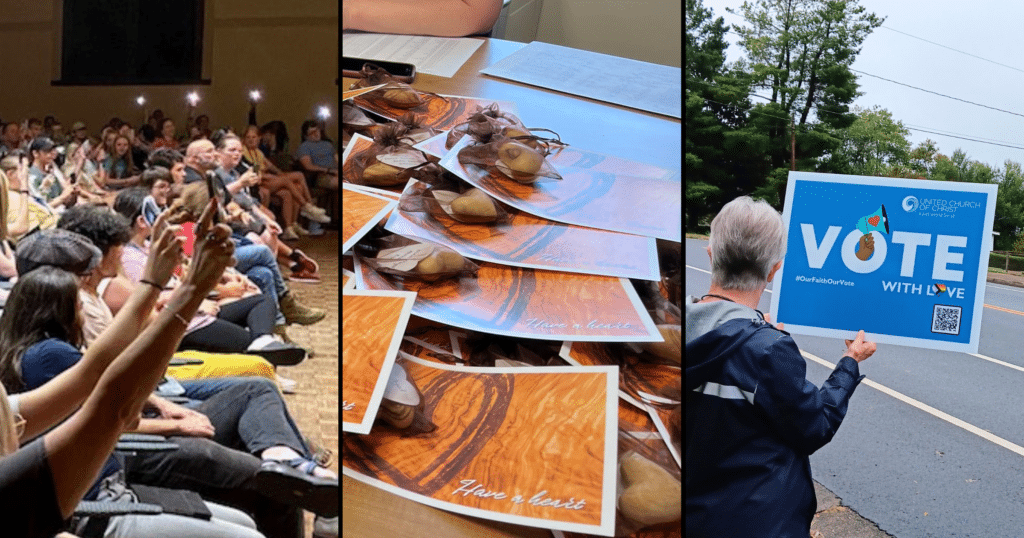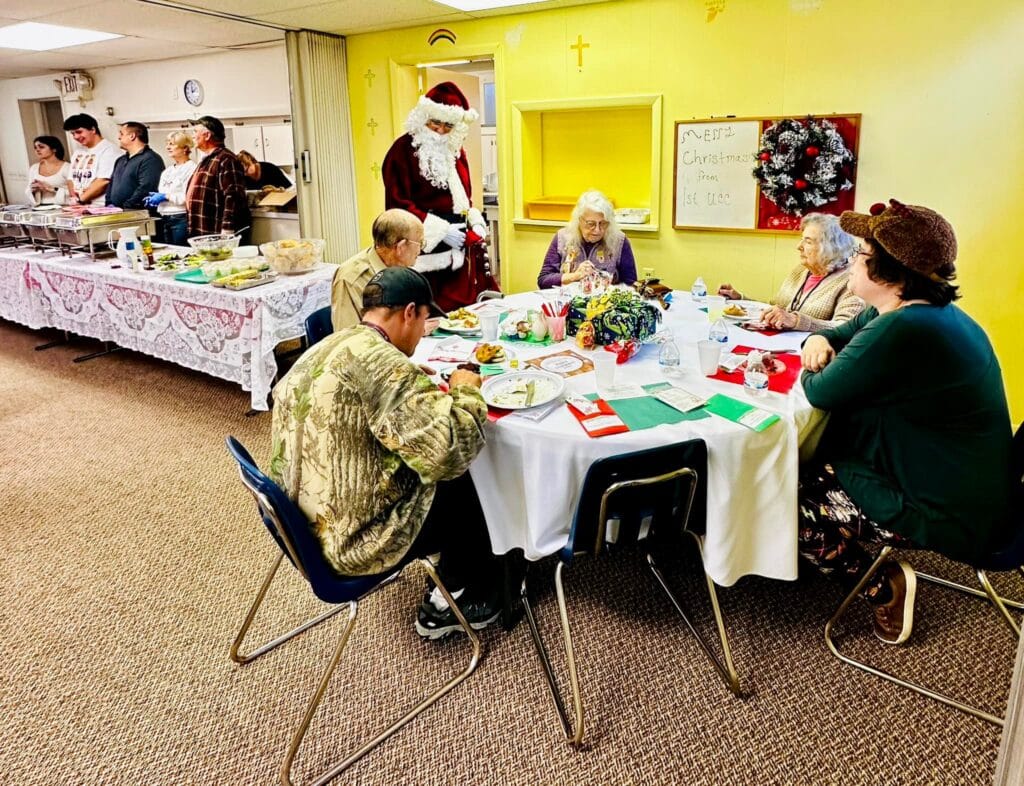Interfaith discussion on race asks, ‘Why aren’t there more Black people in Oregon?’
From left, Rabbi Alan Berg, Mina Bacigalupi, Rev. Jennie Ott, Jane Lovelady, Karin Stolz and Barbara Gold, organizers of the discussion “Why Aren’t There More Black People in Oregon?” Photo by Vern Uyetake, Pamplin Media Corp.
Why is the Black population in Oregon so small? That’s a question that an Oregon congregation of the United Church of Christ will attempt to explore this weekend, when it hosts a community-wide discussion on the history of African Americans in Oregon.
Lake Oswego UCC and Beit Haverim, a Jewish temple, are sponsoring a discussion on Sunday, Oct. 11, in Portland, on the state’s historic struggle with race. The event’s backers, which includes Oregon Humanities, believe that Oregon has a history not only of Black exclusion and discrimination, but also of a vibrant Black culture that helped sustain many communities throughout the state — a history that is not taught in schools.
“We want to engage our congregations and our wider community about the hidden history of racism in our local community and our state, as a way to help us better understand the systematic nature of racism,” said the Rev. Jennie Ott, pastor of Lake Oswego UCC. “Most of us don’t know this history, and as people of faith who long for justice, and in particular seek racial justice, we have to start with understanding our own history.”
That is the focus of “Why Aren’t There More Black People in Oregon? A Hidden History,” a free conversation with Portland State University author and adjunct professor Walidah Imarisha. Imarisha, who has taught in Portland State University’s Black Studies department, will lead the discussion at Lake Oswego UCC.
Lake Oswego UCC and Beit Haverim have shared building space for almost seven years. Both are justice-seeking, progressive, well-educated and predominately white congregations, explains Jane Lovelady, a Lake Oswego member. “We’ve worked to coordinate social justice efforts in the past — environmental advocacy, an open house-benefit on behalf of Freedom to Marry, interfaith services — but this is our first collective focus on race,” she adds.
The latest data from the 2010 U.S. census shows that Oregon has a black population of about 2.6 percent. While that marks an increase of 35 percent (from about 2 percent in the previous census) a decade ago, Oregon still ranks in the bottom one-fifth in the country in the percentage of black population.
In 2012, Lake Oswego UCC created the “Beyond Racism” team, which Lovelady helped found, after the publication of a story by Bruce Poinsette, a member of nearby Ainsworth UCC, on growing up as a Black person in the state. The group’s goal is to talk openly about the differences that divide people in hopes of breaking the silence around personal, cultural, and institutional racism.
“The group began working to address our own roles in perpetuating the systemic, institutional racism that pervades our state and country,” Lovelady said. “We believe dismantling racism begins with ourselves. We want to think about, reflect on, and entertain new perspectives, as we look for new ways to heal old divisions. We hope to promote personal and spiritual growth, deepen relationships with others we don’t know well, and collaborate to make a difference. We believe that racism diminishes all. We are absolutely convinced that God requires us to do more about racism than talk about it.”
The planning team for “Why Aren’t There More Black People in Oregon” is an expansion of Lake Oswego’s “Beyond Racism” group. “We asked our friends at Beit Haverim if they’d like to join us in co-sponsoring this effort, and they answered ‘Yes’ immediately,” Lovelady said. “While this is not a religious presentation, the faith imperatives of both host congregations demand that we do more about racism than talk about it.”
Rabbi Alan Berg of Beit Haverim added, “Joining together with Rev. Ott and Lake Oswego United Church of Christ has advanced Beit Haverim’s social justice commitment. We join hands together to become a source of strength to the larger community. We are blessed to share a vision of community, a valuing of diversity and a hands-on approach to doing something about it.”
Related News
Year in Review: Top news highlights of 2024
The United Church of Christ News team has spent each week of 2024 delivering stories that...
Read MoreNo more lonely little Christmases: Chasing away the blues now and into the New Year
With the loneliness epidemic in the U.S. continuing to affect every one in five people, many...
Read MoreUCC Annual Report video brings to life impactful ministries
Leaders of the United Church of Christ are thrilled to share the newly released 2024 Annual...
Read More

